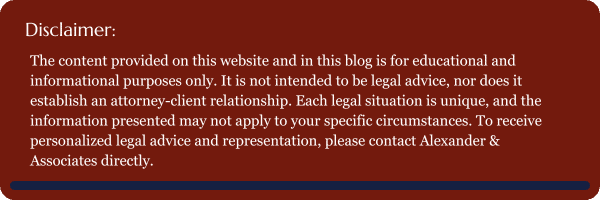Divorce is a challenging and often emotional process, but understanding the options available can help make it more manageable. One of the most fundamental distinctions in divorce proceedings is between contested and uncontested divorce. Knowing the difference between these two types can help you decide the best path forward for your situation.
What is an Uncontested Divorce?
An uncontested divorce occurs when both spouses agree on all key aspects of the divorce, including:
-
Division of property and debts
-
Child custody and parenting time
-
Child support and spousal support (alimony)
-
Any other relevant issues
In an uncontested divorce, both partners agree on their own. They can also get help from a mediator. They do not need a judge to decide for them.
This type of divorce is typically faster, less expensive, and less stressful than a contested divorce. It helps both sides keep more control over the results. This often leads to a friendlier relationship after the divorce.
What is a Contested Divorce?
A contested divorce, on the other hand, occurs when the spouses cannot agree on one or more significant issues. These disagreements may involve:
-
Who will have primary custody of the children
-
How to fairly divide assets and debts
-
Whether one spouse should receive alimony, and if so, how much
-
The specifics of child support arrangements
In a contested divorce, the court becomes involved to make decisions on the disputed issues. This process can involve multiple court hearings, the collection of evidence, witness testimonies, and sometimes even a trial. As a result, contested divorces are generally more time-consuming, costly, and emotionally draining than uncontested divorces.
Which Type of Divorce is Best for You?
Choosing between a contested and uncontested divorce depends on the specific circumstances of your situation. Here’s a look at which might be best in different scenarios:
1. Uncontested Divorce: Best for Amicable Separations
An uncontested divorce is ideal for couples who can communicate openly and agree on major issues. It’s also a good choice when there are no complex assets to divide or when there are no minor children involved. This type of divorce is suitable for:
-
Couples who mutually agree that the marriage is over and wish to part ways amicably
-
Those who want to save time and money by avoiding lengthy court battles
-
Couples who value privacy, as uncontested divorce proceedings are less likely to become a matter of public record
-
Spouses who wish to maintain a cooperative co-parenting relationship
2. Contested Divorce: Necessary for Complex Disagreements
A contested divorce may be necessary when:
-
There are significant disputes over child custody and visitation rights
-
One spouse is hiding assets or there are complex financial holdings that require legal intervention
-
There are disagreements over spousal support, either its necessity or the amount
-
The divorce involves allegations of domestic abuse or other serious issues
In such cases, it’s important to have an experienced attorney who can advocate for your interests, ensure your rights are protected, and help you navigate the complexities of the legal process.
Conclusion
Understanding whether your divorce is contested or uncontested is a crucial first step in the divorce process. An uncontested divorce can save time, money, and stress, but it requires both parties to be in agreement on key issues. A contested divorce, while more involved, is sometimes necessary to ensure a fair outcome, especially in cases involving significant disputes.
At Alexander & Associates, we understand that each divorce case is unique. Our experienced attorneys are here to help you through every step of the process, whether you are pursuing an uncontested or contested divorce. We will work with you to understand your goals and priorities, provide you with clear legal guidance, and advocate for the best possible outcome for you and your family.
If you’re considering a divorce and need legal assistance, contact Alexander & Associates today to schedule a consultation. We’re here to help you move forward with confidence.




0 Comments